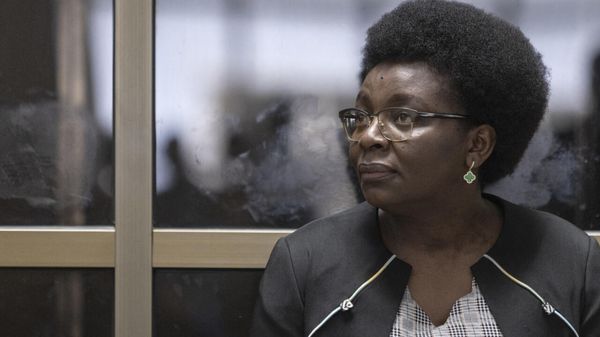
In Victorian courtrooms, solicitors sit across the bar table from the barristers, their backs to the judge and facing the body of the court (in New South Wales, we sit behind the barristers). It means that you can see your clients, and they can see you.
Last week, I was sitting in the Federal Court in Melbourne, watching my client Moz’s face register the serial blows the judge was delivering him. Agony is hard to watch.
Moz — Mostafa Azimitabar — had taken the federal government to court, supported by Amnesty International and my firm, challenging the legality of the system of hotel detention, the so-called APODs (alternative places of detention) that the government maintains around the country as an alternative to the few properly established immigration detention centres.
Moz was medevac’d from Manus Island in 2019 to obtain treatment for his PTSD and depression. He was held for 14 months in two hotels in Melbourne, which were supposed to be used for short-term detention of medical transfers and others but were routinely deployed by the previous government as places of indefinite detention.
Our legal case was that the Migration Act confers no authority on the minister to establish or maintain these APODs, therefore any detention in them is unlawful. The case turned on the interpretation of a definition section in the act. We lost; Justice Bernard Murphy found that the provision does give the minister the requisite power by implication. It’s a fine distinction, determining the lawfulness of the detention of literally thousands of people.
In court, the judge read out the first paragraphs of his written judgment, starting with the bare facts of Moz’s story and the legal arguments we had raised. It wasn’t until the fourth paragraph that we knew the outcome: “I do not consider the applicant’s detention in the hotels to have been unlawful, and his application must therefore be dismissed.” We’d lost, and Moz read it in my face before the words had registered with him. He froze.
Having summarised why we’d lost in brief terms, the judge took an unusual step, concluding his summary with some words directed at the government that he had to know would then frame the media reporting of the case.
His legal verdict, he said, “should not be understood as my approving the immigration detention the applicant was required to endure. I can only wonder at the lack of thought, indeed lack of care and humanity, in detaining a person with serious psychiatric and psychological problems in the hotels for 14 months, primarily in a hotel room with a window that would only open 10cm, and for most of the time without access to an outdoor area to breathe fresh air or feel the sun on his face.”
He went on: “As a matter of ordinary human decency the applicant should not have been detained for such a period in these conditions.”
Later in the judgment, the judge recorded that during Moz’s detention in the Park Hotel, a decision was made by Serco (Border Force’s contracted providers) to apply mirror tinting to the windows “so as to ensure that supporters and protesters could not see the detainees. I find it hard to see a reasonable rationale for cutting off the detainees from sight of people from whom they could have drawn some support.”
Moz was pat-searched by guards hundreds of times; each was an occasion of re-traumatisation for him following his experiences on Manus Island. He was head-counted twice a day; guards came into his room whenever they liked. He ate meals in the basement. In the Park Hotel he had no fresh air at all and was told, “You’ll get used to it.”
I could go on. The judge did go on, in exhaustive detail, about the punitive conditions of Moz’s detention. Keep in mind — he is a refugee, recognised as such since 2017. He suffered trauma in his home country, and on Manus Island, and he has committed no crimes. His detention is supposedly “administrative” only, a practical consequence of the requirements of the Migration Act.
The fact, inescapable from the judge’s findings, is that Moz was subjected to inhuman, degrading treatment by design. His handling defied ordinary human decency — not my words.
The judge recited the particulars of Moz’s trauma to the court, and Moz, I could see, felt more than he heard the words. I am not criticising His Honour, who knew the public impact this might have and evidently felt it needed to be said, but put yourself in the shoes of my client. Just for a minute.
What Moz heard was this, from one of the highest authorities we have: you have been subjected to mistreatment that is beyond imagining and beyond tolerance, by our government. It should not have happened. But it did. And it was lawfully done.
Now, that is not the complete legal truth. While our claim, that the whole rotten system is illegal, failed — meaning it was lawful for the government to detain Moz in a hotel — that does not mean how it was carried out didn’t infringe his rights or that he cannot seek redress for the harm done to him.
That is not, however, the point on which we should focus. The point is that indecent, inhuman cruelty was perpetrated in our country, by our government, and nothing has been done to prevent it from happening again.







